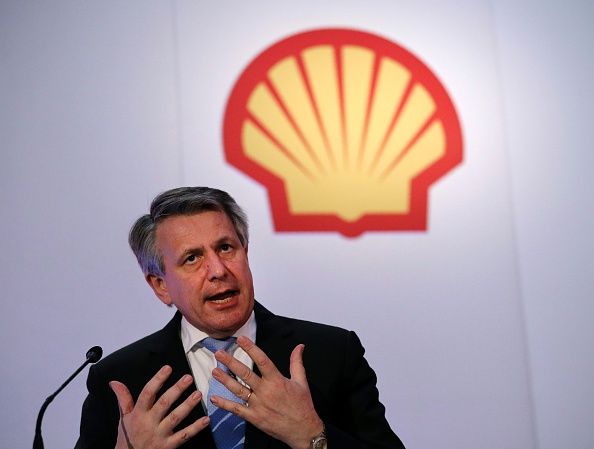Shell says peak oil has passed as firm sets course for net zero by 2050

Oil giant Shell today declared that it had already passed peak oil production as it announced more stringent plans to eliminate carbon emissions by 2050.
At its strategy day this morning, the Anglo-Dutch firm said that its oil production had reached its zenith in 2019, and would fall 1-2.0 per cent every year.
It also set the target of reducing the carbon intensity of its products by 100 per cent by 2050, up from 65 per cent previously.
In the short term, it pledged to cut emissions intensity by 3.0 per cent by 2021.
These targets includes the holy grail of “Scope 3” emissions – those emissions that are the result of activities from assets not owned or controlled by Shell, like firms to which it sells products.
Simultaneously, the company said that it would look to grow its hydrogen, biofuels, and carbon capture technologies over the coming years.
However, in the short term capital spending will remain tilted towards upstream oil and gas production. Shell will put $8bn towards this sector this year, with a minimum of $5bn going to its growth pillar.
But the firm did pledge not to enter into new frontier exploration activities after 2025.
It will also maintain its dividend policy, with the aim of achieving annual returns to shareholders of 4.0 per cent.
Shareholders will vote on the strategy at this year’s AGM.
Chief executive Ben van Beurden said: “Our accelerated strategy will drive down carbon emissions and will deliver value for our shareholders, our customers and wider society.
“We must give our customers the products and services they want and need – products that have the lowest environmental impact. At the same time, we will use our established strengths to build on our competitive portfolio as we make the transition to be a net-zero emissions business in step with society.”
Shares in the firm fell 2.0 per cent by the mid-morning.
Turning round the tanker
Today’s new strategy – ‘Powering Progress’ – comes after a year in which the oil industry was devastated by the coronavirus pandemic.
Before the Open: Get the jump on the markets with our early morning newsletter
With oil prices crashing last spring, Shell and its rivals, such as BP, decided to begin aggressively pursuing a strategy to become “integrated energy” companies.
Having set out its goal to be a net zero emissions firm by 2050, the FTSE 100 firm today put more flesh on the bones of its plan.
Unlike BP, however, Shell did not announce an expansion into wind or solar power, but is instead focusing on alternative power sources such as hydrogen and biofuels.
The company is targeting a double-digit share of global hydrogen sales, while increasing its bioethanol fuel production by 50 per cent, to 3.0 per cent of global production.
It is also planning to add capacity to remove 25m tonnes of carbon dioxide from the atmosphere every year by 2035, up from 4.5m tonnes today.
Shell also aims to double the amount of electricity it provides, to 560 terawatt hours a year, by 2035.
However, not all were impressed. Jefferies analysts said that excepting the new carbon intensity targets, the announcement “does not introduce significant changes in its energy transition strategy”.
At what cost?
Professor David Elmes, head of the Global Energy Research Network at Warwick Business School, welcomed the new strategy, but raised concerns over how the company would fund it.
The strategy day comes a week after Shell laid out a $21bn loss for 2020.
“Until about five years ago, profits at these companies varied but were generally high enough to pay significant dividends to shareholders – and into the pension funds we all rely on”, he said.
“There are some big technology bets in Shell’s plans: carbon capture and storage, more biofuels and replacing natural gas with hydrogen.
“These need a lot of investment to deliver volume at affordable prices. There’s also a shift to focusing more on customers: filling stations that serve EVs and helping customers be more efficient by offering energy as a service”.
Having been forced into cutting its dividend last year due to the oil price collapse, Elmes warned that some shareholders would have serious questions as to whether the firm would be able to balance payouts against new investments into its transition plan.